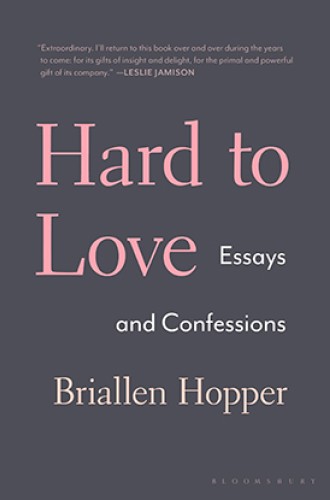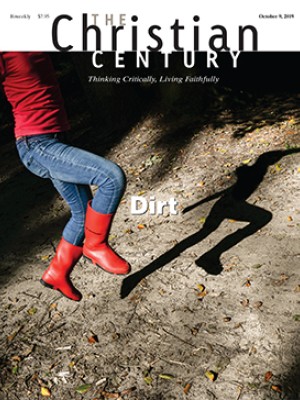The gift of relying on others
Briallen Hopper develops an alternative to the twin American creeds of self-reliance and marriage.
This is the year when most of my classmates are turning 40. So many of my friends were born in 1979 that I see someone marking the occasion on my Facebook feed almost every day. So perhaps it’s no surprise that I found Hard to Love easy to love and hard to put down.
Briallen Hopper covers much familiar ground for readers navigating these years of our lives. She writes from her own experience about learning to rise to the occasion in times of crisis, facing illness, wondering about relationships and fertility, confronting mortality, and living with housemates. Several of the essays seemed like extensions of conversations I’d recently had with people I love.
Read our latest issue or browse back issues.
Certainly part of what drew me into the book was what attracted the author to the TV show Cheers: seeing “characters my own age navigate this at once belated and premature period between youth and midlife, in which you are supposed to have checked off some or all the boxes of adulthood.” Life no longer supports the illusion that we’re not really adults yet. When Hopper writes about being “mistaken for a potential homeowner,” she captures the financial precarity that characterizes adulthood for many in my generation thanks to factors like student debt and unaffordable housing.
And yet the power of this book goes far beyond the attraction of the familiar. As I read, I felt invited with warmth and humor into experiences I’ve never had, like being single in one’s thirties, watching Cheers reruns, and growing up in a fundamentalist church and a working-class family. Hopper’s essays cover a broad variety of topics, from baking to writing to artificial insemination to hoarding.
As with any essay collection, some transitions work better than others. The first three essays follow one another so perfectly I was surprised to see that two of them had been published elsewhere in different years. The book is held together by Hopper’s distinctive voice, which holds steady as she reflects on recurring themes: the importance of interdependence, female friendship, and a love for the world and for writing about it.
Hopper is a literary scholar, and six of the collection’s essays were first published in the Los Angeles Review of Books. One of the book’s charms is how Hopper applies methods of literary analysis and cultural criticism to young adult fiction (The Fault in Our Stars), movies (The Best Years of Our Lives), and television.
She’s also funny. The penultimate essay is a delightfully irreverent juxtaposition of phrases from Moby-Dick and interactions with sperm banks. And one piece of advice she offers in the essay called “How to Be Single” is sending “a Havisham GIF” to potential love interests who might text you.
The book’s richly textured descriptions of friendship and family celebrate relationships that tend to be subordinated to romantic ones in both literature and society. To this end, Hopper addresses loving odes not only to family and friends but also to objects and television characters.
She is also a Christian, and in my reading, her faith is as deeply embedded in her writing as her literary training. Only one of the essays is prefaced by a Bible passage, and that one is mostly ironic (“Hoarding,” Matt. 6:19–21). I say mostly because while hoarders openly disregard the injunction to “lay not up for yourselves treasures on earth,” I read the essay as an extended meditation on the final verse, “for where your treasure is, there will your heart be also.”
The opening essay, “Lean On: A Declaration of Dependence,” has the language and concept of bearing one another’s burdens (Gal. 6:2) at its gravitational center, and this essay organizes the book as a whole. Hopper writes, “sometimes it seems like there are two American creeds, self-reliance and marriage, and neither of them is mine.” This is a book that celebrates the blessings of relying on others. In Hopper’s description of being single in a world made for couples, I found insights that could help guide the church in its pastoral and community care for people whose lives have not conformed to “the marriage plot.”
Hopper enriches the church not only by sharing her experiences but also by the depth of reflection she brings to them. In “Lean On” and throughout the book, she implicitly develops an alternative creed to those of self-reliance and marriage. The early Christians called one another “brother” and “sister,” rethought what it means to be family, and passed on the words of Jesus, “Who are my mother and my brothers?” A concept of family that is renewed by this kind of questioning and potential realignment may be more faithful to Christian tradition than the American creeds we’ve inherited.
While being very open about her perspective, Hopper doesn’t succumb to what Chimamanda Adichie has famously called “the danger of a single story.” From acknowledging the intense racism in Boston as Cheers’s invisible background to seeking out a friend’s side of the story in a fraught time when both of them felt wronged by the other, Hopper models a way of accounting for multiple perspectives as we read and tell our stories.






